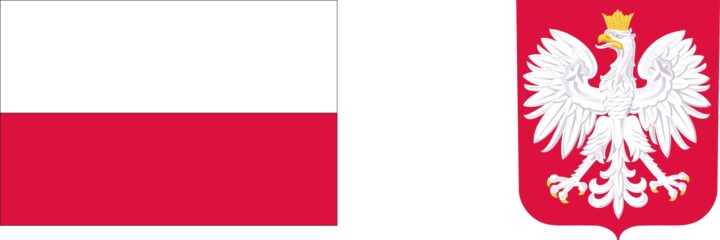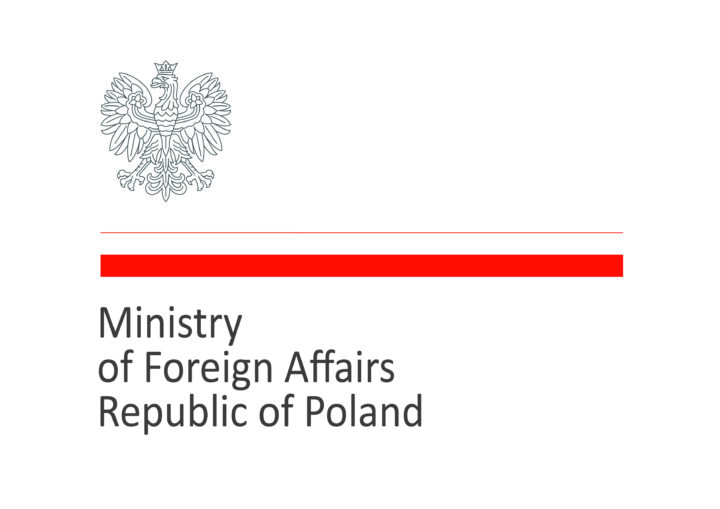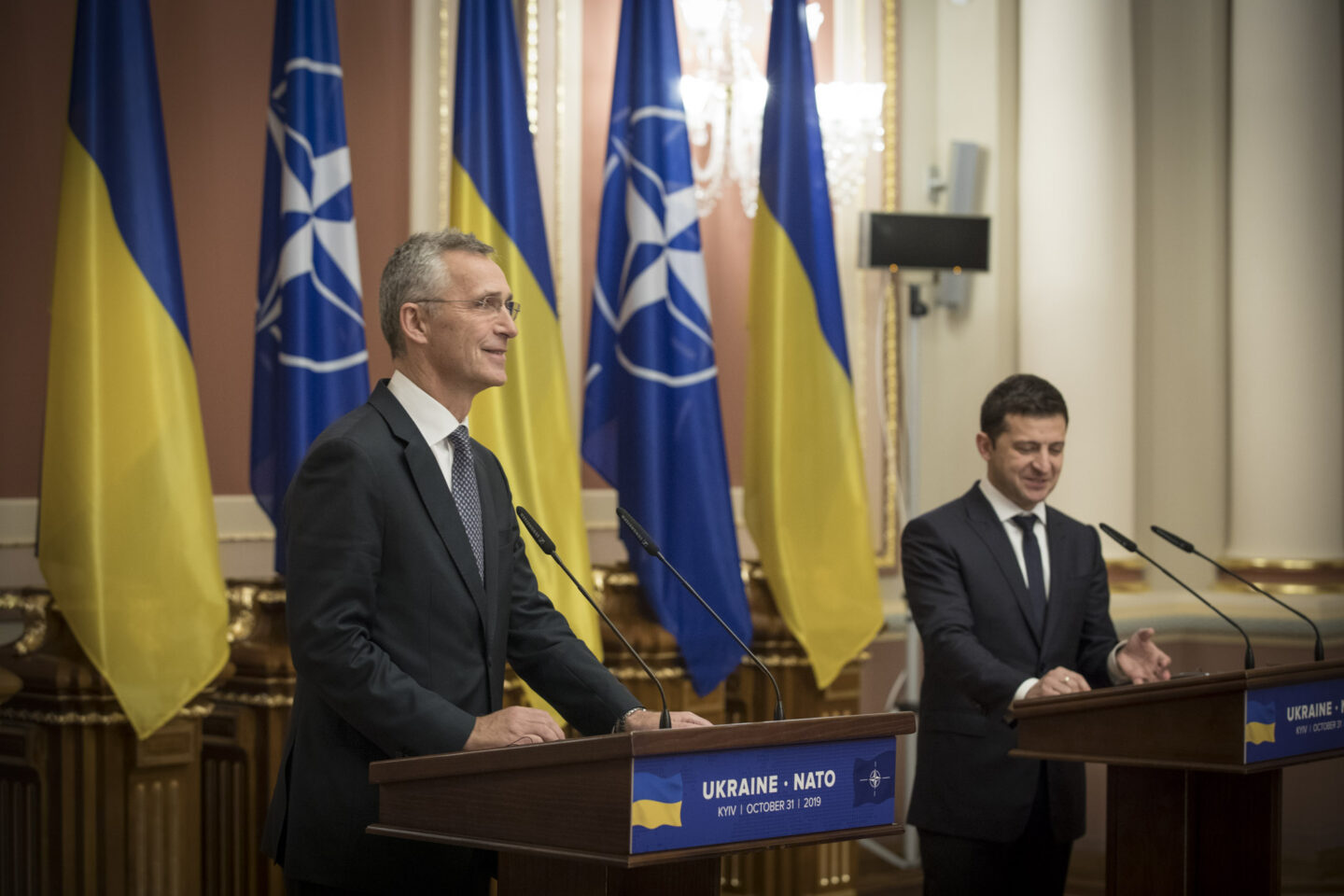Did EU and NATO fail? Conclusions for Poland and the Czech Republic from the West reaction to the war in Ukraine
If EU and NATO want to play an important role outside their borders, they must effectively use all tools available to them to project their power. The determination of western societies should also be remembered, as it may be decisive for the future of our security. Can we feel safe following the aggression on Ukraine? Can the way of using its economy by the European Union and its armed forces by the North Atlantic Treaty Organization during the war fill us with optimism? What conclusions for the future can be drawn, not only by the West, but also by Russia and China?
Sanction policy is a key to their effectiveness
In response to the situation in Ukraine, the European Union imposed sanctions on Russia, which, however, did not stop Kremlin from further actions. Why? First, it should be remember that effects of sanctions always emerge with a delay, especially in a context of a country as large as Russia. Their consequences will be clearly visible soon. Rating agencies forecast that they will be strongly felt by the Russian economy, and thus, by the Russian society, around September.
The sanctions were adopted, but the approach to their very concept proved to be problematic, and this diminished their effectiveness. The sanction policy is not a defence one, but also not a penal policy. It is an element of a ‘coercive policy’, and a measure of its effectiveness is a change in an opponent’s behaviour, resulting from a clear message in reaction to its behaviour in form of tightening or loosening of actions directed against it.
In this context, the European Union has failed. The EU sanctions were adopted very late. Russia started to move its armies towards the Ukrainian border already about a year before the beginning of the invasion. Already then, the European Council should order the European Commission to develop a list of specific sanctions, to come into force in case of the Russian attack. Another mistake was a failure to publish the second package of sanctions, prepared on the eve of war and containing truly effective sector, bank and technological sanction tools.
The European Commission maintained it as confidential (the works were coordinated by DG FISMA). During the first phase, EC decided not to share its contents even with the EU member states. Thus, before 24 February, neither the EU public opinion nor the opponent knew about its existence. This contradicted the meaning of the coercive policy. If the EU wishes to play an important role on the international global scene in the future, a system for preparing, imposing and removing sanctions must be much more flexible.
Tasks for the Czech presidency
Soon, the Czech Republic takes over the presidency of the European Union Council, and this should become an impulse for strengthening the Central European perspective in the previous EU approach to the war. What should be the key actions of the Czech Presidency in the context of the situation in Ukraine?
The key issue is to continue the EU financial assistance in purchases of weapons. The Czech Presidency may introduce into the European Union Council agenda discussions concerning further support from the European Peace Facility. So far, Kiev received from this source EUR 450 million for defensive purposes and EUR 50 million for purchases of non-lethal resources. Further financial resources, up to EUR 1.5 billion, were also promised.
Furthermore, the Czech Republic can initiate recommendations of the European Union Council for the European Commission to review current frameworks of the EU-Ukraine agreement. Concluding an agreement on simplifying the visa system and issuing a related regulation on liberalisation of the visa system for Ukrainian citizens travelling to the EU could represent even a greater step forward.
Another action could be to use its mandate to promote the EU enlargement policy and put it high on the Brussels agenda. The efforts dedicated to the accession of Ukraine should not be made at the expense of Balkan countries aspiring to the accession. If the attention is constantly focused on the enlargement issue, and the enlargement fatigue is overcome, this will support more than just the Ukrainian EU ambitions.
The Czech Republic, being one of the initiators of the Eastern Partnership, should continue to strive to ensure that this part of the EU policy is treated as a priority by Brussels. This format must also have a strong security dimension. The Eastern Partnership is a tug of war between the EU and Russia. Its effectiveness is important in terms of counteracting Machiavellian attempts of President Emmanuel Macron in the French foreign policy, and convincing Germany to the new EU eastern policy. In the interest of the Czech Republic and Poland is to avoid repetition of the Normandy Format, under which the fate of Ukraine will be decided between Germany, France and Russia.
Defensive capabilities of the NATO eastern flank
It is not only the European Union who is responsible for a sufficient reaction to the Russian aggression. It is NATO, as a defensive alliance, that can use a military force in conflicts outside its borders, even when its permissible range is limited.
NATO definitely should find a way to join this conflict, which has become a war between the civilisation and the barbarians by its nature. This would not be unprecedented, after all, as the North Atlantic Treaty Organisation intervened in the Balkans, Libya or Iraq. It was possible, for example, to introduce a limited flight restriction zone over western Ukraine, a humanitarian and military airbridge to Mariupol or rapid exercises with deployment of forces in Georgia.
Ultimately, large NATO countries provided effective support to Ukraine in form of weapon systems supplies. In case of Poland and the Czech Republic, it is positive that when this war ends and a time comes for preparing a summary balance of weapons supplied to Ukraine, the states of Bucharest Nine (B9) will be among the real leaders of the European peloton, proportionally to the size of their armies.
Apart from evaluation of assistance to Ukraine, it is also necessary to take a look at a way in which this war will affect a future position of NATO in the global arena and the defence capabilities of its Eastern flank.
The Madrid Summit is to bring a change from the “forward presence” to the “forward defence” and from the “air-policy” to the “air-defence”. Units up to brigade size, and command and logistic structures able to receive units up to division size will be deployed on the NATO eastern flank. The United States presence in the territory of Poland will increase noticeably. An opportunity arises for the Czech Republic to use the presence of the allied forces in Poland, for example, to conduct exercises of the Czech Army special units in the Polish-American base in Drawsko Pomorskie, send one of the 7th Mechanised Brigade battalions under the NATO command in Elbląg, or conclude a defence agreement including a mechanism putting the Czech tank brigade into action in case of an attack on Poland or Baltic States.
At the global level, NATO will continue to face two enemy powers that use a similar military strategy: Russia and China put an emphasis on a limited fight, with an initial high rate of development of military actions, achieving fait accompli in the attacked country, and the use of anti-access/area-denial defensive components to achieve military objectives.
The North Atlantic Treaty Organisation must react to that threat. A new marine strategy, investments in the fast parasol anti-access/area-denial penetration, an increase in a level of European ambitions within NATO (European battle groups which are more flexible and enduring in a battle field), as well as acceleration of decision-making processes during a war are required.
Change in the strategic thinking is necessary
The war proved to be a “window of opportunities” which can be used to strengthen the North Atlantic Treaty Organisation position in the global arena. Apart from a direct tactical and military response, the West needs to reflect over its strategic thinking.
What influences our security is more than just a number of our military units and the strength of our weapons. It is also a psychological perception of our strengths and weaknesses. Russians, similarly as any other enemy, will draw a number of conclusions from the war between Ukraine and Russia.
The West is still lacking full unity Although the Western unity is visible during NATO and EU summits, yet when we analyse specific steps taken by member states, we see clear differences in perception of a military threat. The disputes concern: specifying types of weapons considered as escalation ones, determining a final objective for the western military assistance for Ukraine, and a conviction about a need to achieve an agreement between Ukraine and Russia. The North Atlantic Treaty Organisation has at its disposal multilateral mechanisms for hazard evaluation; however, it turned out that they are not able to generate uniform hazard evaluations.
Western societies show signs of a high level of fear as a common psychological phenomenon. For two years, Kremlin had observed how fear of COVID-19 paralysed the entire world. After the Russian aggression on Ukraine that fear concerned the use of the military force. Today, western societies are different than in the 1990s. The Srebrenica massacre led to the NATO military action, but it was not so in case of the barbarities in Mariupol.
Western politicians are not inclined to take risks. Rulers are dependent on the social support, which can be measured immediately in social networks. It is political and PR counsellors who define what is considered risky by politicians, rather than security experts or intelligence officers. Actually, a risk associated with the restricted flight zone over western Ukraine, or with the air transport and landing in Mariupol was political, and not military. During shelling of Mariupol, 16 Ukrainian helicopters managed to get into the city. Russians were able to bring only two of them down. Therefore, a military risk of sending planes with humanitarian aid to Mariupol, if they had been escorted by modern NATO planes, would have been minimum.
The use of a great military force will not be effective when the military goal is not aligned with political goals and the level of involvement of the defending party. Any possible future opponent of the West will seek other ways for conducting kinetic and non-kinetic operations. Enemy military planners will have a task of initiating a military attack in such way that it would constantly place the western leaders before a dilemma whether a fight is necessary or not. An air or marine blockade may be consider, or a rapid attack with a fast withdrawal of forces. Everything well below the limits of Article 5 of the North Atlantic Treaty.
***
If Russia does not fall apart in consequence of the lost war, it will still remain an dangerous and determined enemy. However, then Moscow will be forced to significantly change its strategy and doctrine. This also applies to China, which closely monitors development of the situation in Ukraine.
This cannot remain unanswered by the United States and entire NATO. A fundamental question for the eastern flank is, whether all NATO members can be certain that the remaining part of the Organisation will fight for them. After the war, during which the worst possible atrocities were committed without its reaction, there is a reason for enemies to depreciate its importance and activity.
Recent months have shown that during a crisis, it is not ministers of defence or intelligence representatives who make decisions. They are made by politicians, who answer to the public opinion. Therefore, the pure military reaction to the war between Russia and Ukraine is not enough. We need an aware society which understands that there are moments when even the greatest pacifist must take up arms.
This article is available under a Creative Commons Attribution 4.0 International license. Some rights reserved to the Author of the article and the Jagiellonian Club. The article was created within the framework of „Polish-Czech Forum for the rapprochement of societies, deepened cooperation and good neighborliness 2022”. Any use of the work is allowed, under the condition that the above-mentioned information is preserved, including information about the applied license, rights holders, and that a link to our website is provided.
The opinions expressed in this publication are those of the authors and do not reflect the views of the official positions of the Ministry of Foreign Affairs of the Republic of Poland. Public task financed by the Ministry of Foreign Affairs of the Republic of Poland within the grant competition „Polish-Czech Forum 2022”.






